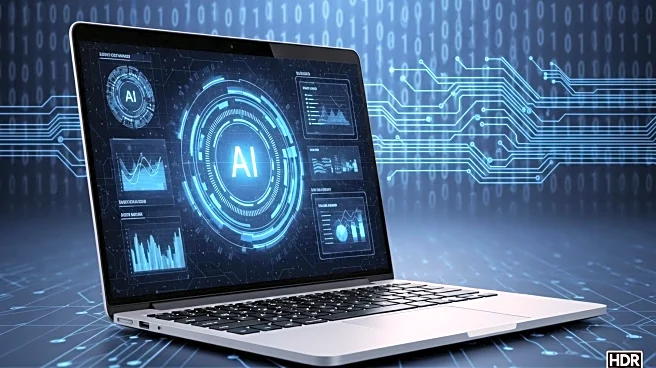What's Happening?
Recent computer science graduates are facing difficulties in securing employment as AI technology increasingly automates coding and software development tasks. This trend is reducing the demand for entry-level roles, traditionally filled by new graduates. Despite the excitement surrounding AI advancements, the job market for tech positions has become more competitive, with employment for recent graduates in computer science and math jobs declining by 8% since 2022. Major tech companies, including Microsoft, have implemented layoffs while increasing reliance on AI for coding tasks. Graduates are finding it challenging to compete with AI and more experienced developers, leading to reconsideration of software engineering as a viable career path.
Why It's Important?
The shift towards AI-driven automation in the tech industry has significant implications for the future workforce. As companies streamline operations and reduce headcount, the traditional pathway from education to employment in tech is disrupted. This could lead to a reevaluation of educational programs and career planning for aspiring engineers. The reduced demand for human coders may impact the economic prospects of new graduates, potentially leading to increased unemployment rates among this group. Additionally, the reliance on AI could reshape the skills required in tech roles, emphasizing adaptability and proficiency in AI tools.
What's Next?
Educational institutions are adapting their curricula to prepare students for the evolving job market, incorporating AI-assisted software development courses. Coding bootcamps are also shifting focus to include AI skills across various disciplines. As the industry continues to evolve, graduates may need to acquire new competencies to remain competitive. Companies may further refine their hiring strategies, potentially favoring candidates with advanced AI skills. The long-term impact on employment patterns and career trajectories in tech remains uncertain, with ongoing developments in AI technology likely to influence future opportunities.
Beyond the Headlines
The integration of AI in software development raises ethical and cultural questions about the role of technology in the workforce. As AI takes on more tasks, the balance between human creativity and machine efficiency becomes a focal point. This transition may also affect workplace dynamics, with potential shifts in job satisfaction and career fulfillment. The broader societal implications of AI-driven automation, including its impact on economic inequality and access to opportunities, warrant further exploration.










